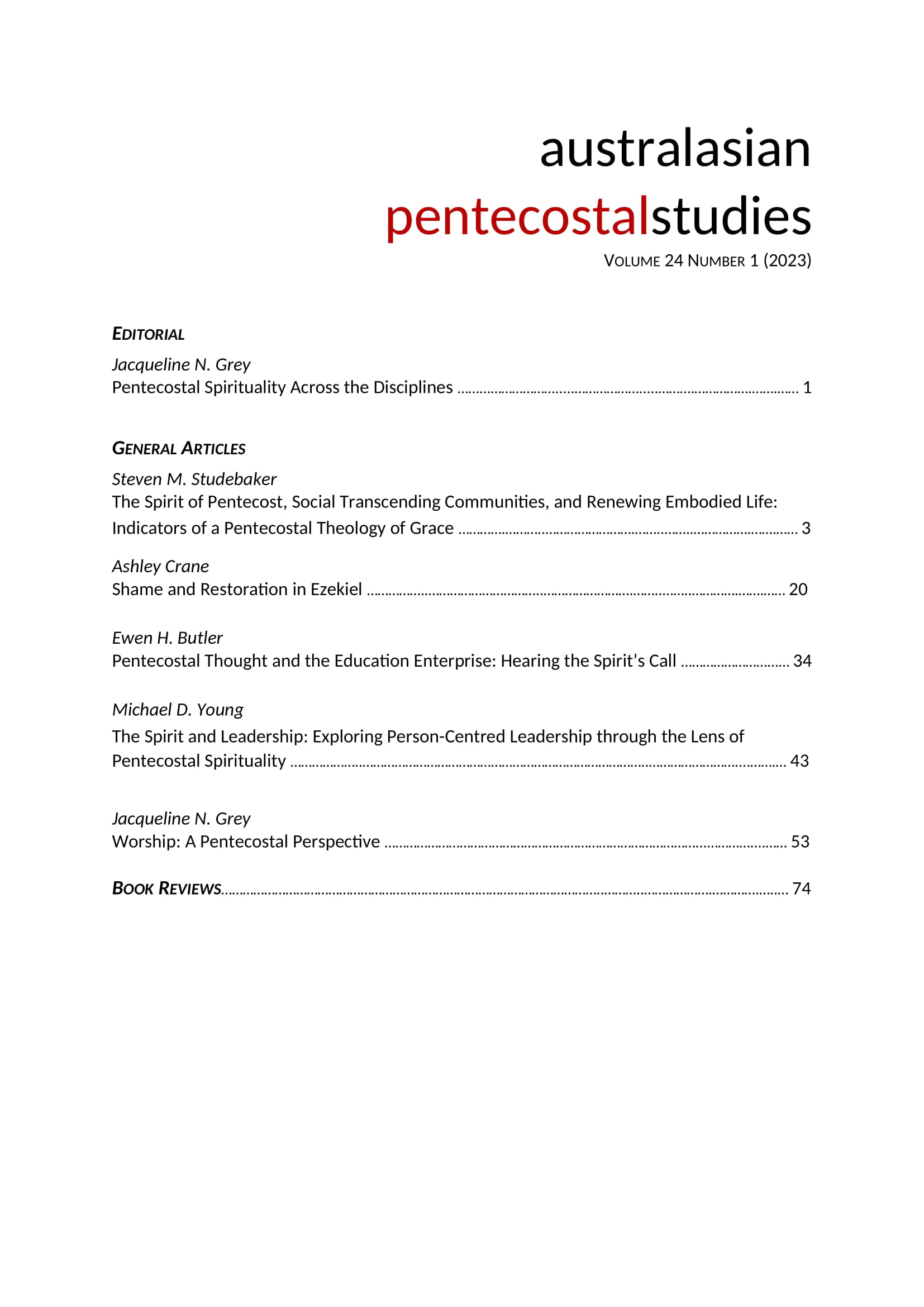Pentecostal Thought and the Education Enterprise
Hearing the Spirit’s Call
Abstract
The paper explores the contribution that Pentecostal thought might make to public education, and specifically how Pentecostal parents, teachers and administrators can potentially influence curriculum and school life. The overarching goal is to extend the implications of recent Pentecostal reflection to the development of a theology of the Spirit for the classroom. Part of approach is concern not only for the development of the intellect for the betterment of society, but the development of values, and more importantly, the awakening of the transformative qualities of the soul, such as humility and compassion. These aspects of human flourishing need to be firmly established in early education but can also be emphasized in the secondary school environment where Pentecostal parents clearly concerned with the future welfare of their young people especially their character formation, can seek to become active participants. The conclusion is that Pentecostals can have a legitimate voice at the wider table of learning. It will mean an effort not just to adopt a generic evangelical educational methodology, but to place greater emphasis on the affective domain of human learning, the realm of aspects and habits of the heart. The paper invites ongoing discussion toward the development of a thoroughgoing ‘pneumatological’ approach to Christian learning both in person and virtually.
Downloads
Published
How to Cite
Issue
Section
License
Authors who publish with this journal agree to the following terms:
- Authors retain copyright and grant the journal right of first publication with the work simultaneously licensed under a Creative Commons Attribution License that allows others to share the work with an acknowledgement of the work's authorship and initial publication in this journal
- Authors are able to enter into separate, additional contractual arrangements for the non-exclusive distribution of the journal's published version of the work (e.g., post it to an institutional repository or publish it in a book), with an acknowledgement of its initial publication in this journal.
- Authors are permitted and encouraged to post their work online (e.g., in institutional repositories or on their website) prior to and during the submission process, as it can lead to productive exchanges, as well as earlier and greater citation of published work (See The Effect of Open Access).


